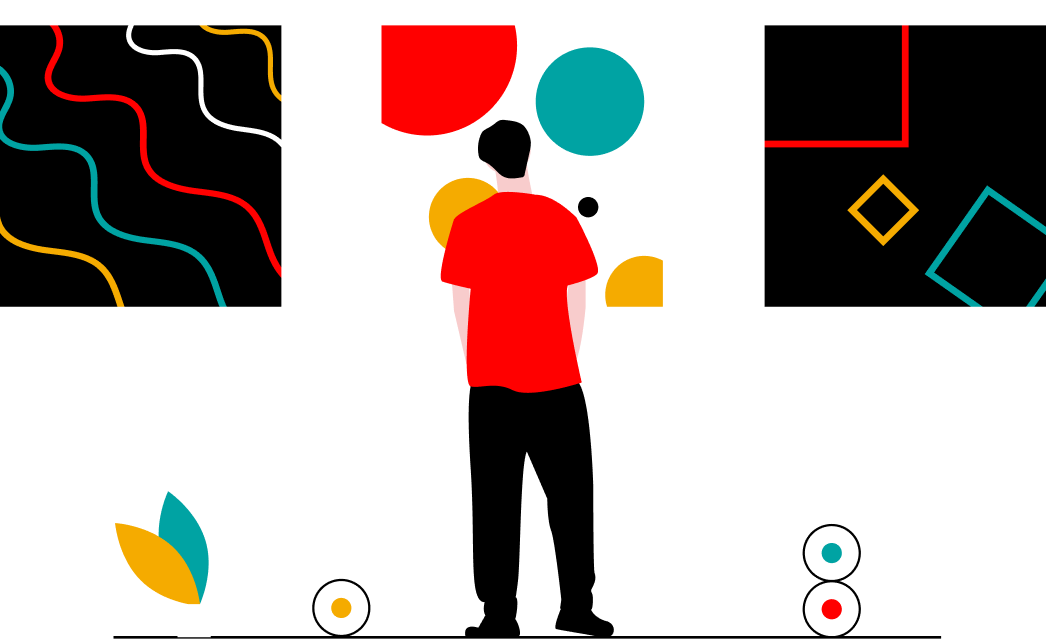Internal discussion about AI

I was discussing with my friend Pablo what to write here next. You know, it's been a while... again.
— "Have you done your tour of AI chat bots?"
— "Nope, and I don't really think I will", I said to Pablo.
— "Why not? Maybe you should write about that, then".
I've been reluctant to touch on the topic of AI because it's been discussed once and once again, everywhere. Of course I'm interested in the area and its technical advances over the last years – I think anyone that considers itself a "geek" or "nerdy" or any degree into tech is checking what's going on – but my issue with the topic is also more philosophical than technical. And I'm not even sure I'm right.
So let's have a deep dive into my thoughts about it, in hopes that writing on this topic makes me learn things.
We call everything AI
And I don't think that's helping anybody
Large language models, neuronal networks, , deep learning, machine learning... Have you heard of them? Do you know you're using them? Probably yes, since you're like me – and you're reading this – but I don't think regular-non-tech people know of them. And yes, they're all ways to create or sub-segments of artificial intelligence, so you could argue they're AI overall, but what are we going to call the real general AI when we get to that point?
In summary, if you want to get technical about it, AI is the field of knowledge, with machine learning being a sub-field of it. Then deep learning is a sub-field of machine learning that uses neural networks as the backbone of its algorithms.

In its current state, not all AI is the same. We've generative AI, the newest form of AI that's making waves with ChatGPT, Dall-E, Bard, etc; but before that we had digital assistants, like Alexa and Google Assistant focusing on using AI to recreate speech in a human-like form; we had AlphaGo and all the gaming AI breaking world records or defeating world champions in their fields; we are also experimenting with AI to control and create newest and more efficient ways to manage nuclear reactors or come up with 40,000 new chemical weapons in 6 hours. Some scary uses at the end, huh? Most of these used different fields of AI to be designed and be able to perform the best in order to accomplish their desired goal.
And from this what we can gather from it is that not all AI works the same, too, right? Otherwise we would have only one name for the AI controlling the nuclear reactors and speaking to us and beating us in our games. So why do we call everything AI when not every AI is the same AI? Yeah, Marketing.
Even if they're all subsets of AI, it's easier and catchy to just call them AI. Like calling all cola drinks Coke and all tissues Kleenex. Add to that the punch it has to say that your product has AI – it makes you sound smarter and more technologically advanced than your competition. Next thing you'll know is you're having AI brewed coffee, but can you explain to me how that would be better than coffee made by humans? So please be sure to not be a victim of marketing.
The truth is, everyone can use a large language model and create their own "AI" to perform a certain task, with differences on what algorithm may be best for your use case. There are some open source alternatives or you could use those created by large companies as long as you agree with their licences. I'm really looking forward to developing an AI to make posts in this blog that are specifically written to sound like me. A(i)ELO, you heard it first here.
It all comes down to
the definition of AI
If you're a somewhat normal person and are not totally invested or involved in the AI world, you might be keeping in mind that the definition of artificial intelligence is one that is similar or imitates the intelligence humans have. You may even remember hearing about the Turing test, which, easily put, sets a stage where a hidden machine and a human have a conversation and if the human cannot differentiate the machine from another human, then we would consider it "intelligent or that it has a mind". Now, the interesting thing about this test comes after, and it's often not mentioned. Alan Turing noted that the reality is we cannot even determine that about other people. He even says "it is usual to have a polite convention that everyone thinks". Think about it. What makes you consider that a human is intelligent? And, after that, why would you say one human is smarter than the other?
Usually, the response to comparing why someone is smarter than somebody else comes down to the way they do something. The Turing test also evaluates ability. We cannot evaluate the machine thinking or if it has a mind because we cannot see it – and we actually don't know much about how our human mind works – but we can test its behavior and base the results on that. There's even a quote misattributed to Einstein that says:
If you judge a fish by its ability to climb a tree, it will live its whole life believing that it is stupid.
This is where you can add the fact that a machine is not a human, so why are we expecting human behavior from non-human things? In the most popular artificial intelligence textbook in the world, Artificial Intelligence: A Modern Approach by Stuart J. Russell and Peter Norvig, a good comparison is brought up:
Aeronautical engineering texts do not define the goal of their field as making 'machines that fly so exactly like pigeons that they can fool other pigeons.'
In fact, John McCarthy, the scientist who helped develop and coin the term "artificial intelligence" and is also the creator of the Lips programming language for early AI, defines intelligence by itself as "the computational part of the ability to achieve goals in the world". You see, it doesn't apply to only humans. That's why we started changing the definition of AI into something more fitting of what one would consider a computer being intelligent.
Currently, the definition of artificial intelligence varies depending on who you ask, but can be generalized – in my words – as "a set of technologies that allow computers to perform advanced tasks that one would consider to require human intelligence". These tasks can vary in scope and purpose, but one example can be seeing. Vision requires processing datasets in order to detect, identify, extract data, etc; and it's a task that you normally wouldn't think your personal computer can be capable of, mostly because they lack eyes. But they can and they do, if taught.
Was I wrong?
Yes. Writing this has been a humbling experience. I've learned how behind I am – or how fast the world is moving – in the field of artificial intelligence.
I kept this old view of artificial intelligence being the imitation of human thinking. You know, the android-behaving-like-a-human-and-knowing-it-all kind of thing you see in science fiction. I couldn't come to terms with the fact that we call everything AI, because I imagined AI being an all mighty do-it-all bot instead of specialized tools developed for certain tasks companies are employing in their products now. I still have some issues with them calling everything AI, but mostly because I'm a firm believer in accuracy in language, yet I can understand that the general consumer doesn't need to know specifically what technical tool of AI they're using to perform a menial task.
Also, when did the technical definition change so much?
I hope you end up finding this little rant on AI a little bit useful or interesting at least, and if there's any other topic you want to see discussed internally like this let me know at @scaarg on X (ex-Twitter) and Threads .
Until the next one.





